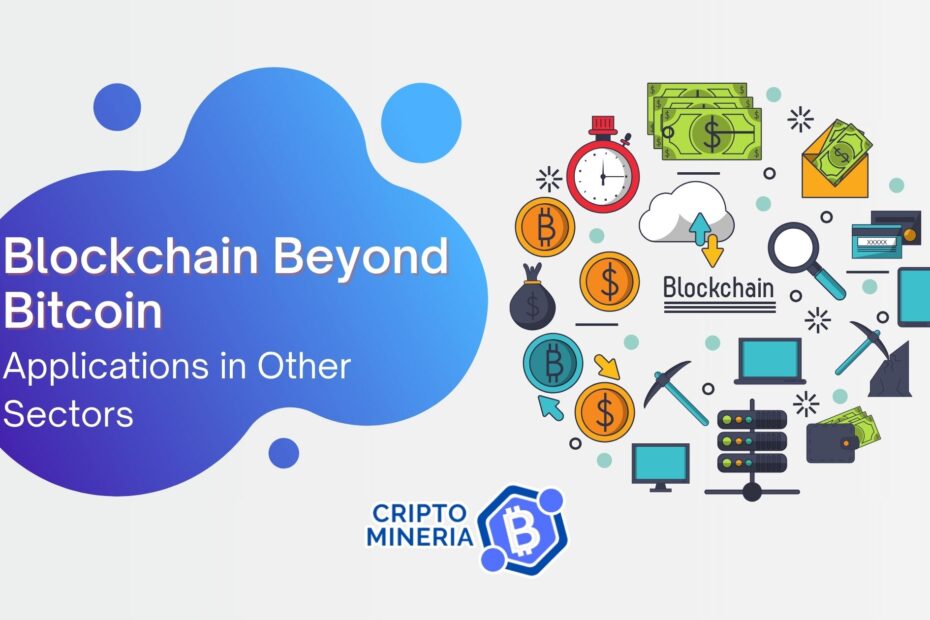When we mention the term blockchain, the first thing that comes to mind is cryptocurrencies, especially Bitcoin. However, the reality is that blockchain technology goes far beyond digital currencies, with the potential to revolutionize various sectors of the industry. In this article, we will delve into the world of Blockchain Beyond Bitcoin applications that are expanding beyond the financial universe.
Blockchain, or the chain of blocks, is a decentralized and secure system of digital records in which transactions are stored immutably. Each of these records, or “blocks,” is linked to the next through cryptography, forming a chain of blocks. But how is this technology implemented in different sectors?
Blockchain Applications Beyond Cryptocurrencies
Healthcare
- Medical Record Management: Blockchain enables the creation of secure and shared electronic medical records, increasing patient efficiency and privacy.
- Drug Supply Chain Tracking: Ensures the authenticity and safety of medications from manufacturing to distribution.
Logistics
- Product Tracking: Allows tracking the journey of a product from its origin to its final destination, increasing transparency and efficiency in the supply chain.
- Inventory Management: Provides a real-time view of inventories, reducing losses and optimizing the supply chain.
Government
- Electronic Voting: Blockchain technology can ensure security and transparency in electoral processes, reducing the possibility of fraud.
- Digital Identity: Offers a secure and reliable way to verify individuals’ identities, streamlining bureaucratic processes.
Intellectual Property
- Copyright Protection: Enables the registration and verification of ownership of creative works, combating piracy.
- Patent Management: Facilitates the registration and management of patents, improving process efficiency.
Other Sectors
- Energy: Management of renewable energy and energy markets.
- Food: Tracking the food supply chain, ensuring food safety.
- Smart Contracts: Automation of contracts and agreements, reducing costs and execution times.
Benefits of Blockchain
Blockchain offers a wide range of benefits, from security, thanks to its decentralized and encrypted nature, to efficiency, as it can automate many processes, reducing costs and execution times.
Challenges and Considerations
Despite its many advantages, blockchain technology faces challenges such as scalability, the complexity of implementation, and the lack of clear regulation.
Conclusion
It is clear that blockchain technology extends its influence beyond cryptocurrencies. Its capacity to transform various sectors is considerable, and we are still in the early stages of realizing its full potential. As the technology continues to evolve, we can expect to see even more creative and innovative applications in the future.
At Mining Bitcoins Online, we focus on the mining process of various cryptocurrencies like Bitcoin, Bitcoin Cash, and Litecoin, guiding our stakeholders on the promising path of crypto mining.
Frequently Asked Questions
What is blockchain technology?
It is a decentralized and secure digital record system where transactions are stored immutably.
What are some benefits of blockchain?
Some benefits include security, transparency, immutability, and efficiency.
In which other sectors can blockchain technology be applied?
Beyond cryptocurrencies, it can be applied in healthcare, logistics, government, intellectual property, energy, and food, among others.
How is blockchain used in the drug supply chain?
It can be used to ensure the authenticity and safety of drugs from manufacturing to distribution.
What are the challenges of implementing blockchain?
Some challenges include scalability, the complexity of implementation, and the lack of clear regulation.

